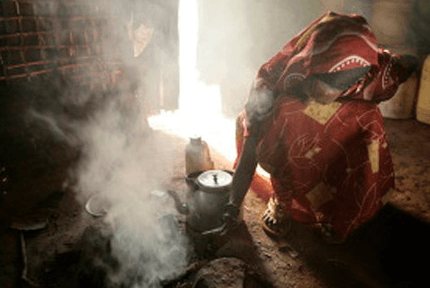Network to share £2m funding to tackle household fuel air pollution in Africa

A Network of partnerships established to look into and find solutions to air pollution in sub-Saharan Africa has received a £2 million funding.
According to a press release from the University of Portsmouth copied to ghanabusinessnews.com, the AIR Network has received over £2 million to bring together arts and humanities and medical research to address issues of public health in developing countries.
The project is led by the Stockholm Environment Institute at the University of York. The network comprises of 15 partners from a wide range of disciplines sharing £169,000.
“Researchers from the University’s Faculty of Creative and Cultural Industries are part of the AIR (Action for Interdisciplinary Air Pollution Research) Network that has received funding from the Medical Research Council (MRC) and Arts and Humanities Research Council (AHRC) Global Challenges Research Fund Partnership Award,” the release added.
According to the release, air pollution is a significant contributor to respiratory and cardiovascular disease and is recognised as a major global health concern.
Citing World Health Organisation estimates, it said outdoor and indoor air pollution causes 6.5 million deaths every year.
It also indicated that particulate matter (PM) is the mostly invisible particles in the air, including ash, smoke, soot, dust and fumes.
“Every breath a person takes contains PM and PM is the type of air pollution that most commonly causes ill health. In the developing world, exposure to indoor pollution, due to cooking, lighting and heating using cheap and dirty fuels, contributes to 4.3 million deaths a year. Outdoor and indoor PM concentrations are particularly high in Africa’s informal settlements, which are often located close to roads and industry. In Africa, fine PM is associated with 920,000 premature deaths a year and causes chronic lung disease in adults (mainly women) and pneumonia in children,” the release pointed out.
In Ghana some 17,000 people are dying every year from air pollution caused by household fuels, 3000 of those impacted are children.
The release stated that the AIR team will visit informal settlements in Nairobi and work with local communities to gain understanding of the concerns and challenges that residents face with regard to air pollution.
It added that a mixture of methods will be used to engage and communicate, including theatre, visual arts, mobile phones, games and music.
“Researchers will explore opportunities to co-create viable, sustainable and culturally relevant interventions to reduce exposure to PM. By the end of the 18-month project, the AIR network will have identified a future programme of work, including specific initiatives to work with citizens to improve public health and to identify and apply for further funding,” it said.
By Emmanuel K. Dogbevi
